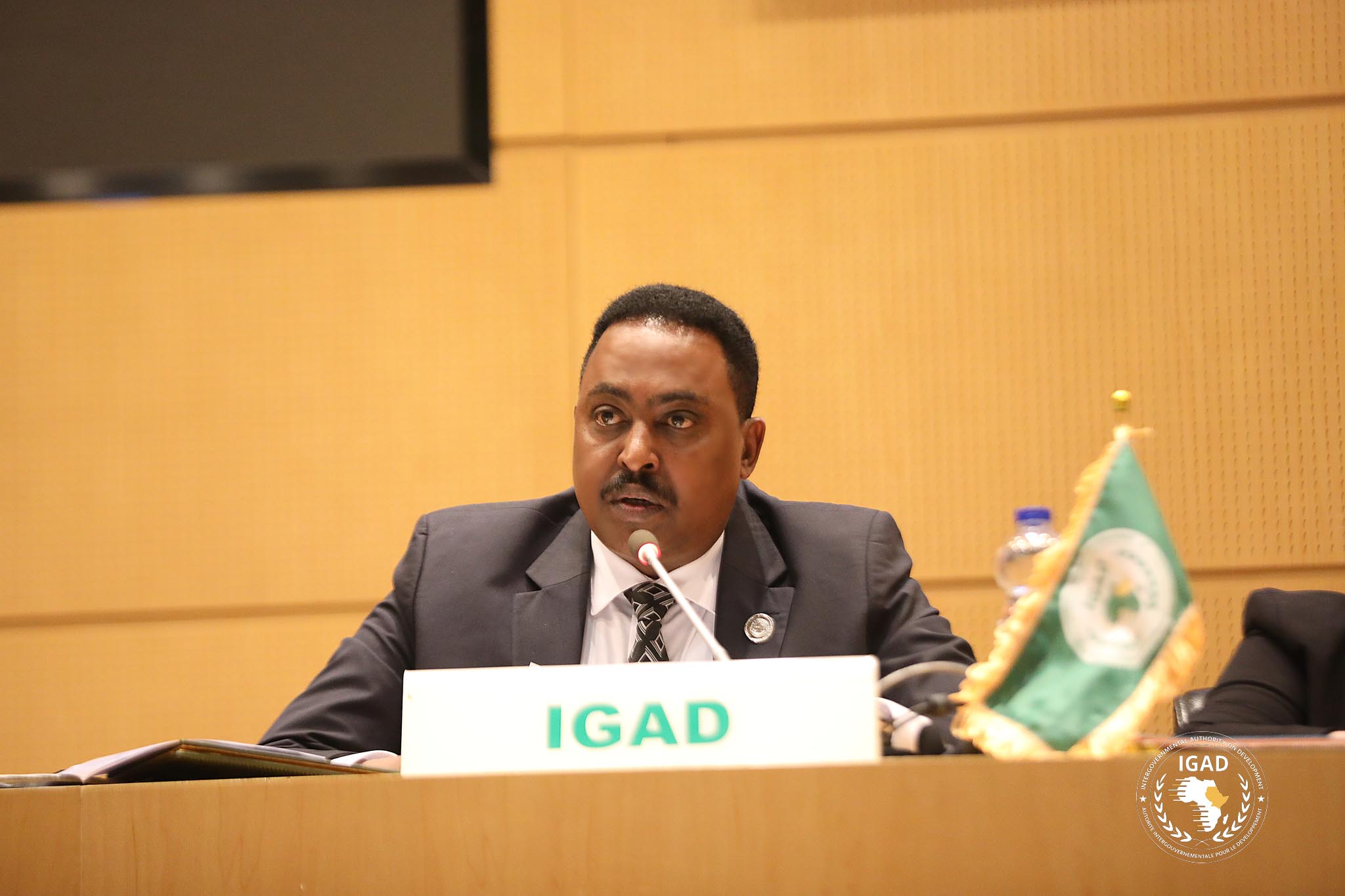Good Morning,
• I stand on the established protocols as observed;
Thank you for the opportunity to allow me on behalf of IGAD to address you all at this event which is very relevant for the greater horn of Africa and our continent at large considering the recent and ongoing situations that demand humanitarian action.
Speaking for IGAD, we were conceived as a product of crisis, but within this crisis were the seeds of opportunity. The drought and desertification in the 1980s revealed the visionary character of the leadership of our region and set the stage for IGAD to grow from a humanitarian response institution and evolve into a formidable vehicle of regional peace, prosperity, and integration.
Our Member States are keenly aware of the adverse impact that perennial humanitarian crises have on our ambition for a peaceful, prosperous, and united continent.
It is undeniable that our region is one of the most conflict-affected in the world, hosting the largest displaced populations in the world. In the same vein, we have had no choice to become one of the most innovative in finding solutions.
We are home to the youngest Republic in our community of nations, home to active processes of state reconstruction and reformation, home to one of the most vibrant democracies in the world, and home to one of the most successful peace processes in living memory.
Excellencies,
These dynamics all have a “humanitarian price tag” attached to them, and this is a price we must pay.
The good news is that we have partially paid as the African Union for the last 60 years. However, now is the time for us to discuss how we can be better humanitarians not only by helping out but also by preventing crises in the first instance.
Our watchwords now are “African Solutions to African Problems.” I want to add value to this principle for us as committed multilateralists in this room.
Let us also adopt the maxim of “Human solutions to human problems.” There is overwhelming evidence of the unstoppable power of humanity’s ability to recover from our worst excesses through the magic and selflessness of multilateralism.
Let us draw inspiration from our predecessors who established multilateral institutions
that facilitated the reconstruction of Europe and Japan in the post-war period.
Now is the turn for Africa, and it is long overdue.
Our continent is grappling with many crises, some of which are not of our own making. As our world has continued experiencing the effects of climate change, our countries and communities are suffering the most and yet we have contributed
the least to climate change. Our pastures are getting drier; our water is disappearing; our people are fighting and, consequently, unintentionally creating humanitarian crises.
Nevertheless, this is our problem. How can we solve it together?
Let me put forward three basic suggestions for your consideration.
i. Close the gap between early warning and early action: They say that “forewarned is forearmed.”
We must invest first and foremost in the prevention of humanitarian crises so that the available resources are unlocked and better directed toward long-term development.
And indeed, many academic studies and our own observations have shown that lack of development is one of the root causes of humanitarian crises that affect our part of the world in the first place.
In response, IGAD has seriously invested in continental early warning systems, including the African Union Early Warning and Conflict Prevention platform (I-RECKE) that we jointly launched in July of last year in Lusaka, Zambia during the 4th AU Mid-Year.
Coordination Meeting.
Additionally, IGAD is committed to leveraging the twin AU instruments of the Continental Free Trade Area and the Free Movement Protocol to unleash economic prosperity in our region and by so doing, curb the security challenges that continue in our region.
We need more help and capacity building in this area.
ii. Secondly, let also us rely more on ourselves. As a continent, we must invest in locally situated strategic reserves including emergency humanitarian response funds.
I appreciate that this intention is a tall order, especially in the context of competing development priorities, but it is vital for us as a continent to have a “rainy day” fund for our kind of emergencies.
This is where our Africa Humanitarian Agency comes into play. It is mandated to ensure effective coordination and harmonisation of humanitarian action on the continent alongside critical actors, including UNOCHA and IFRC.
As IGAD, we fully endorse and support the AU Humanitarian Agency to operate on the principles of Pan-Africanism, solidarity, and the basic African values of “ubuntu.”
iii. Thirdly, we need to step up dialogue and actions to address the root causes of situations that compel us to engage in humanitarian action. This meeting today represents a vital first step in this area, and we need to continue this conversation.
In closing, I wish to thank the Governments of Rwanda and Sierra Leone, in partnership with Norway, UNOCHA, and IFRC as well as all humanitarian actors for their foresight in putting together this event.
Finally, I commit to ensuring that the IGAD region plays its rightful role in birthing a New Humanitarian Agenda for the African continent.
Download the remarks in pdf format below

